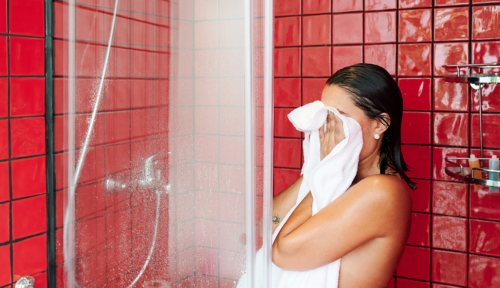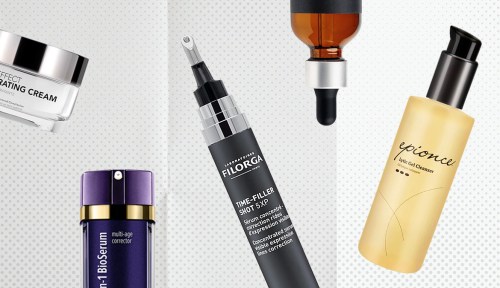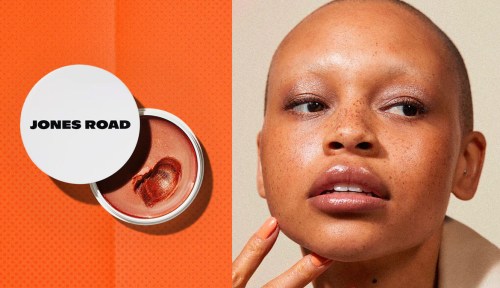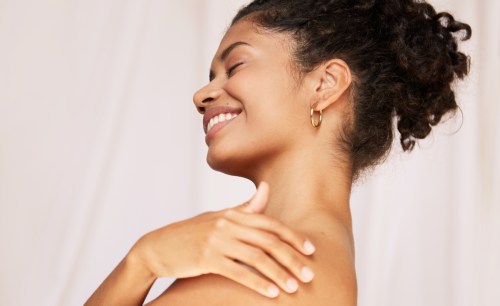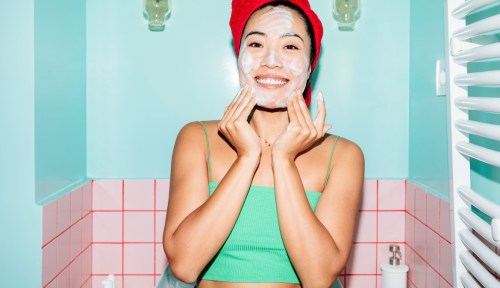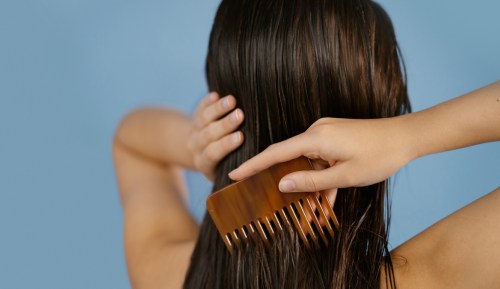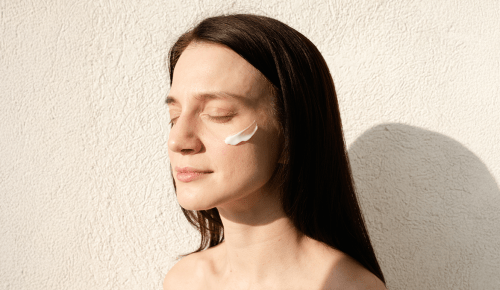Our editors independently select these products. Making a purchase through our links may earn Well+Good a commission
If you’ve got sensitive skin, there’s a whole laundry list of things that can cause irritation—like overdoing it on skin-care products or spending too much time in cold, dry weather. One more sneaky culprit? Your shampoo.
Experts in This Article
board-certified dermatologist at Audubon Dermatology in New Orleans
board-certified dermatologist
board-certified dermatologist in Maryland
board-certified dermatologist and founder of Maei MD
Any time you wash your hair, you’re not just impacting your hair. As you work shampoo into your scalp, the product inevitably drips, and if you’ve got reactive skin, the wrong formula can lead to irritation. “We often will look at the pattern of rash on people’s skin and sometimes you can deduce that, ‘Oh, this is probably related to a hair-care product,’” says Ivy Lee, MD, a board-certified dermatologist based in Pasadena, California. She explains that if there’s a red, flaky, itchy rash along someone’s hairline, in or around their ears, or down their neck and back, it may be a side effect of the shampoo, conditioner, or styling products they’re using.
One easy way to fix this, she says, is to use one of the best shampoos for sensitive skin. These formulas are gentle and free of potential irritants, which will help keep flare-ups at bay. Keep reading for everything you need to know.
The best shampoos for sensitive skin at a glance
- Best shampoo for sensitive skin overall: Vanicream Free & Clear Shampoo, $13
- Best luxury shampoo for sensitive skin: Briogeo Be Gentle, Be Kind, $28
- Best drugstore shampoo for sensitive skin: Aveeno Rose Water & Chamomile Shampoo for Dry Hair, $8
- Best shampoo for sensitive, oily scalps: Christophe Robin Purifying Scalp Scrub with Sea Salt, $38
- Best shampoo for dry, sensitive scalps: Odele Ultra-Sensitive Shampoo, $12
- Best shampoo for sensitive skin and thin hair: The Ordinary Sulphate 4% Shampoo Cleanser for Body & Hair, $11
- Best shampoo for sensitive, flaky scalps: HairSanity Shampoo, $30
- Best shampoo for sensitive, acne-prone skin: Seen Skin-Caring Shampoo, $26
- Best shampoo for sensitive skin with eczema: Dermoia Eczema and Psoriasis Shampoo, $25
- Best shampoo for sensitive skin with fragrance: Kristin Ess Hair Extra Gentle Shampoo, $12
- Best pH-balancing shampoo for sensitive skin: DHS Clear Shampoo, $16
Shop the best shampoos for sensitive skin
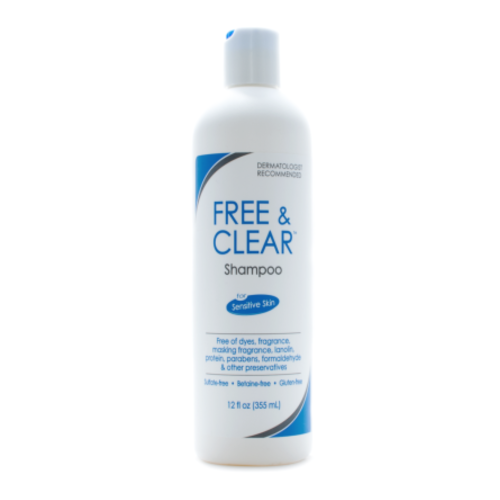
Best shampoo for sensitive skin overall: Vanicream Free & Clear Shampoo — $11.00
Highlighted ingredients: Potassium sorbate, water, citric acid
Dr. Lee recommends to this shampoo to patients who have an allergic reaction or sensitivity to their hair-care products. “Vanicream products have no fragrance, no parabens, which is a common preservative, and don’t include any of the most common allergens that are in hair-care products,” she says. Dr. Spann echoes this sentiment, calling out this product as one of her favorites for sensitive skin and scalps.
Size: 12 oz.
Pros:
- Free from fragrance, parabens, dyes, lanolin, masking fragrance, protein, and formaldehyde releasers
- Dermatologist tested
Cons:
- Offers minimal haircare benefits
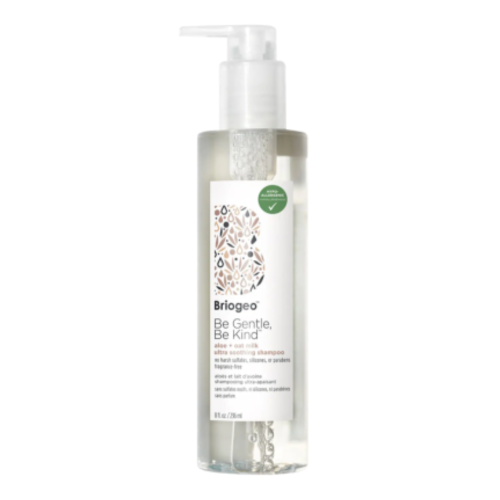
Best luxury shampoo for sensitive skin: Briogeo Be Gentle, Be Kind — $26.00
Highlighted ingredients: Aloe vera, oat milk, green tea extract
Rebecca Marcus, MD, a board-certified dermatologist based in Dallas, loves this shampoo for people with sensitive skin. It contains aloe vera, which is rich in vitamins and minerals known to provide antimicrobial and irritation-minimizing benefits; oat milk, which contains polysaccharides and is rich in omega-6 fatty acids and vitamin B to nourish hair; and green tea extract, which provides antioxidant, antimicrobial, and irritation-minimizing benefits.
Size: 8 oz.
Pros:
- Calms scalp and soothes skin
- Leaves hair shiny and moisturized
- Specifically formulated for people with sensitivities to fragrance, essential oils, lactose, soy, and gluten
Cons:
- Has very little lather, which some reviewers don’t like
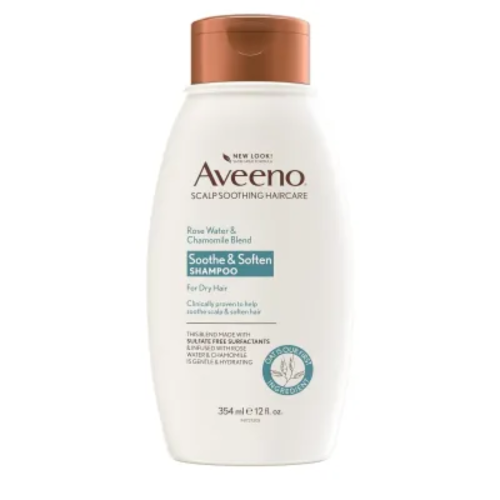
Best drugstore shampoo for sensitive skin: Aveeno Rose Water & Chamomile Shampoo for Dry Hair — $20.00
Highlighted ingredients: Colloidal oatmeal, rose water, chamomile
Dr. Marcus, who is the founder of skincare line Maei MD, likes this shampoo from Aveeno—which is known for its sensitive skin-friendly formulas. It’s made with colloidal oatmeal to soothe dry, itchy scalps, plus rose water and chamomile to soften and nourish all hair types.
Size: 10 oz.
Pros:
- Soothes scalp itch and irritation
- Hydrates hair
- Great for dry, fine, and fragile hair textures
- Free of soap, dyes, and parabens
Pros:
- Contains light fragrance
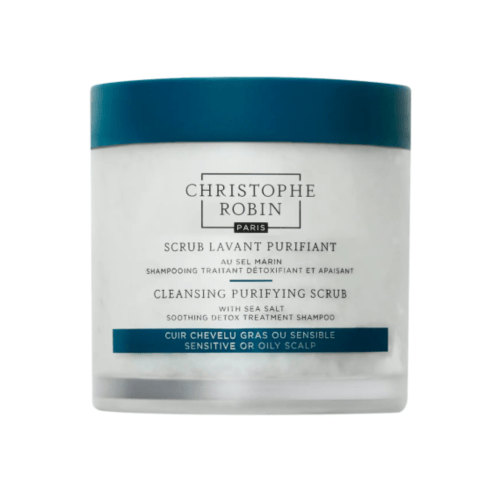
Best shampoo for sensitive, oily scalps: Christophe Robin Purifying Scalp Scrub with Sea Salt — $54.00
Highlighted ingredients: Sea salt, almond oil
It may feel impossible to navigate the tricky combination of a scalp that’s sensitive and oily, but Dr. Marcus says this gentle scrub can help. It’s made with sea salt crystals that dissolve in water, offering a gentle (yet effective) exfoliation that doesn’t feel overly abrasive. It can help cleanse hair and remove oil and product buildup to clear away anything standing in the way of the rest of your soothing scalp products working to their full potential.
Size: 2.5 oz.
Pros:
- Clears away dirt, oil, and product buildup
- Dermatologists confirm it’s gentle enough for sensitive skin
- Using it is a true luxury experience
- Free of parabens, silicones, SLS, and colorants
Cons:
- Expensive
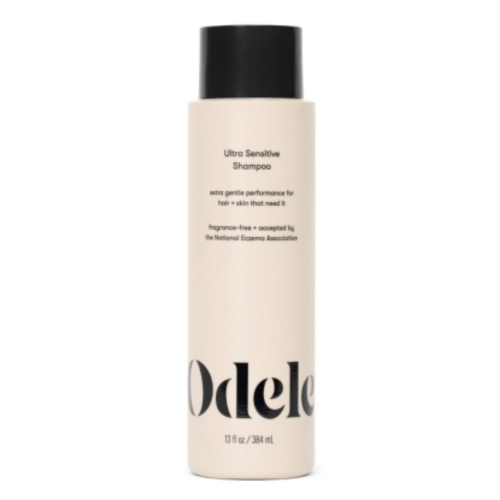
Best shampoo for dry, sensitive scalps: Odele Ultra-Sensitive Shampoo — $12.00
Highlighted ingredients: Amino acids, oat
Even the driest scalp is no match for this extra-sensitive shampoo—which is gentle enough even for use on eczematic skin thanks to the inclusion of soothing oat extract. The benefits don’t stop there, though: The formula is infused with amino acids, which help to strengthen hair and prevent damage.
Size: 13 oz.
Pros:
- Free of SLS or SLES sulfates, formaldehyde, phthalates, parabens, and synthetic fragrances
- Adds shine, prevents damage, and strengthens hair
- Infused with skin-friendly ingredients
Cons:
- Some reviewers say it left their hair feeling dry
- Has a thick texture that’s difficult to lather
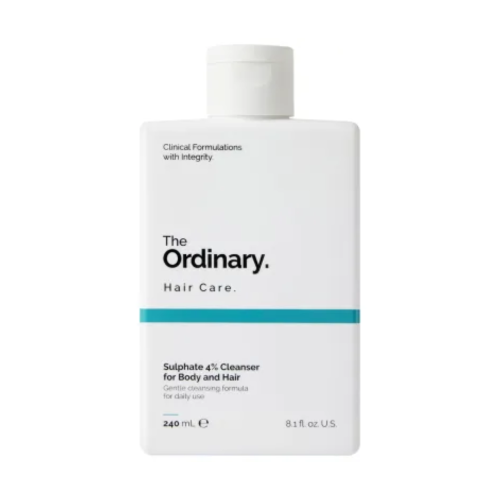
Best shampoo for sensitive skin and thin hair: The Ordinary Sulphate 4% Shampoo Cleanser for Body & Hair — $9.00
Highlighted ingredients: Hyaluronic acid, squalane
This shampoo from The Ordinary uses a sulphate called SLES as its lathering agent, which is gentler and less drying than the usual SLS. This, dermatologists say, means that it’s a worthy choice for those with fine hair, because it’s less likely to dry out your strands and cause breakage. The formula also includes hydrating ingredients like hyaluronic acid and squalene, which mimic your skin’s natural moisturizing factors to lock in moisture and prevent dryness and flaking—and one W+G writer saw these results after only a few uses. Even better? It’s so skin-friendly, you can use it all over your body.
Size: 8.1 oz.
Pros:
- Great for fine or thin hair textures (but works on all hair types)
- Hydrates scalp and strands
- Affordable price point
- Reduces flaking and itching
- Free of parabens, formaldehyde-releasing agents, phthalates, and fragrance
Cons:
- SLES is gentler than other sulfates, but it still may be irritating on some skin types
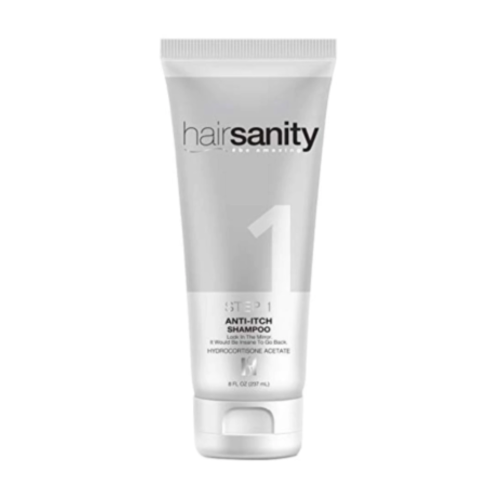
Best shampoo for sensitive, flaky scalps: HairSanity Shampoo — $30.00
Active ingredients: Hydrocortisone acetate, alp rose extract, oat kernel extract, sea whip extract
Developed by Dr. Kazin, this shampoo uses hydrocortisone to help soothe itching and flaking that’s caused by irritation. Most other anti-itch shampoos are antifungal, and if your itch isn’t caused by a fungus, an anti-fungal won’t help. “If your irritation is from an allergy or an irritant, you truly need something to calm inflammation, and the best thing to calm inflammation is hydrocortisone,” she says.
Size: 8 oz.
Pros:
- Developed by dermatologists
- Contains hydrocortisone to relieve itching and discomfort
- Free from parabens, sulfates, and zinc pyrithione
Cons:
- Must be used three times a week for maximum benefits
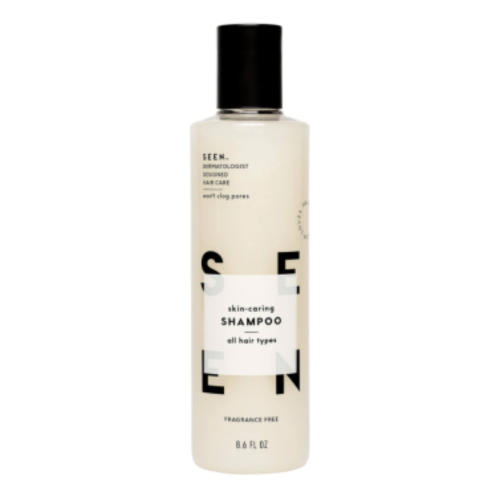
Best shampoo for sensitive, acne-prone skin: Seen Skin-Caring Shampoo — $29.00
Highlighted ingredients: Hemisqualane, bisabolol:
In addition to causing irritation, shampoo can also cause body breakouts—and if you’ve got sensitive, acne-prone skin, this is the formula for you. Designed by a Harvard-trained dermatologist, this shampoo is free of fragrance, sulfates, silicones, phthalates, parabens, dyes, pore-clogging oils, gluten, and formaldehyde/formaldehyde releasers. In addition to being great for acne-prone skin, it’s also got the National Eczema Association’s Seal of Acceptance. And it’s not just skin-friendly, either: it also reduces frizz and protects against heat to leave your hair looking (and feeling) like the best version of itself.
Size: 8.6 oz.
Pros:
- Free from sulfates, silicones, phthalates, parabens, dyes, pore-clogging oils, gluten, and formaldehyde/formaldehyde releasers
- Won’t clog pores or cause breakouts
- Reduces frizz, protects against heat damage
Cons:
- May be drying to hair
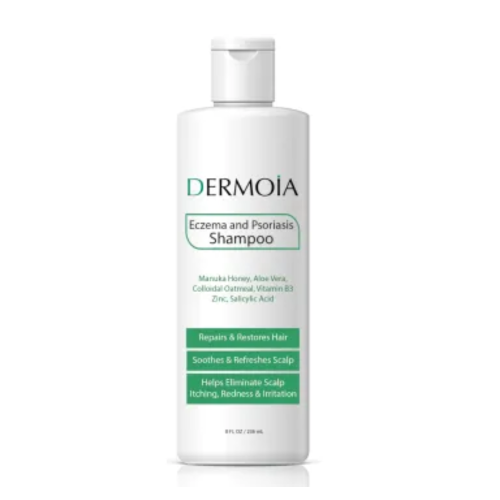
Best shampoo for sensitive skin with eczema: Dermoia Eczema and Psoriasis Shampoo — $25.00
Highlighted ingredients: Manuka honey, colloidal oatmeal, aloe vera, zinc, vitamin B3, salicylic acid
Dr. Spann is a fan of this derm-developed shampoo for those with skin conditions like eczema and psoriasis. Not only will the formula not exacerbate these issues, but it will actually help improve them thanks to its power-packed list of active ingredients. Manuka honey, aloe vera, and colloidal oatmeal soothe the scalp and reduce inflammation; vitamin B3 improves moisture retention; and zinc and salicylic acid offer flake-reducing benefits.
Size: 8 oz.
Pros:
- Improves skin conditions like eczema and psoriasis
- Leaves hair shiny
- Reduces itching, flaking, redness, and irritation
Cons:
- Offers medicinal benefits that may not be necessary for those who aren’t dealing with conditions beyond standard sensitivity
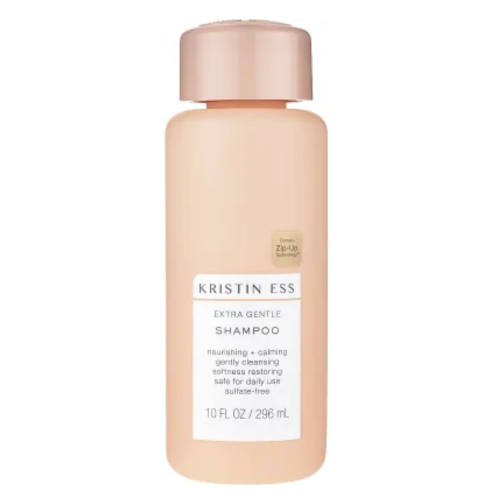
Best shampoo for sensitive skin with fragrance: Kristin Ess Hair Extra Gentle Shampoo — $11.00
Highlighted ingredients: Avocado oil, castor oil, mango seed butter, and sunflower seed oil
If you’re sensitive to some common shampoo ingredients, but not fragrance, you’re in luck: This drugstore formula uses a low level of fragrance, meaning it will still leave your hair smelling divine but won’t cause irritation. It’s packed with skin-and-hair nourishing ingredients, free from parabens, phthalates, sulfates, and silicones, and will gently cleanse your scalp while leaving your hair soft and shiny. It’s got a subtle, fresh-from-the-salon ambrette seed, magnolia, and sandalwood scent, and the experience of using it is a far cry from the medicinal-feeling sensitive skin shampoos of yesteryear.
Size: 10 oz.
Pros:
- Free from parabens, phthalates, sulfates, and silicones
- Has a subtle ambrette seed, magnolia, and sandalwood scent
- Packed with skin-nourishing ingredients
Cons:
- Not suitable for anyone sensitive to fragrance
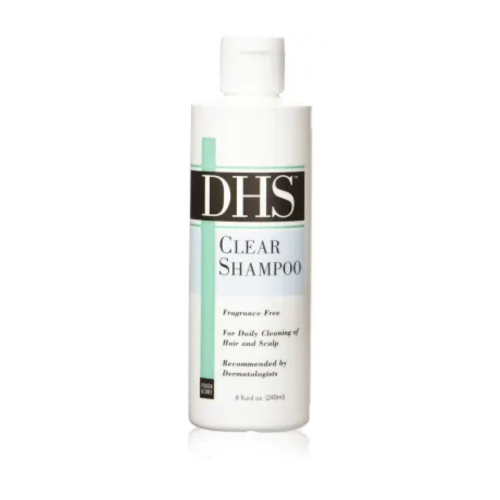
Best pH-balancing shampoo for sensitive skin: DHS Clear Shampoo — $16.00
Highlighted ingredients: Water, citric acid
Diedre Hooper, MD, a board-certified dermatologist in New Orleans, Louisiana, often recommends this shampoo to patients with sensitive skin. It’s made from a blend of cleansing and conditioning agents that gently cleanse the hair and scalp while balancing pH levels to keep the scalp calm and happy.
Size: 8 oz.
Pros:
- Dermatologist-recommended
- Free of parabens, fragrance, SLS, and added dyes
- Balances scalp pH
Cons:
- Extremely basic formula; doesn’t offer additional hair benefits
The most common irritants found in shampoo
When shopping for a sensitive skin-friendly shampoo, the most important thing to keep an eye on is what the formula doesn’t have. Look for products that are made without these three ingredients, which derms name as the most common irritants for reactive complexions.
1. Sulfates
“The main thing that everyone talks about is sulfate surfactants,” says Rebecca Kazin, MD, a board-certified dermatologist in Maryland. “Sulfate surfactants are detergents. They’re very good at lathering, and their whole job is to remove oils and dirt, but sometimes they do their job a little too well, and remove the natural moisture of your scalp and hair. And so it can just overdo it for people who already have dry, sensitive skin.”
Sodium lauryl sulfate (SLS) is the most common sulfate you’ll find in your hair-care products. “It’s in nearly all shampoos, because it creates an effective lather, which many have been conditioned to think is necessary for a clean scalp,” says Candace Spann, MD, a board-certified dermatologist, hair loss specialist, and founder of ReTress. “Because SLS can strip the hair of its natural oils, it can dry out the scalp and cause irritation.”
To avoid sensitivities, your best bet is to look for a sulfate-free shampoo or one that uses sodium laureth sulfate or sodium C14-16 olefin sulfonate as its lathering agent, which Dr. Spann says are less harsh and drying.
2. Fragrance
Fragrance has a reputation for causing reactions in sensitive skin, which is why derms often recommend fragrance-free facial and body-care products for these complexions—and the same goes for shampoo. “People don’t think about all the fragrances in their shampoos,” says Dr. Kazin. “There are a lot of irritations from these strong, strong fragrances. So I would look for ones that have a low fragrance level or that are labeled ‘hypoallergenic.’”
It’s worth noting that it’s very common to find fragrance in your haircare products, and it’s not always so easy to spot on the label—which is why it’s important to know what to look out for. “Fragrances can be difficult to avoid because they come under so many different names,” says Dr. Spann. “Fragrance or ‘fragrance mix’ are the most obvious, but fragrance can also be identified as balsam of Peru, linalool, and limonene.”
3. Preservatives
Preservatives are another common ingredient known to cause sensitivities. “Preservatives are used in shampoos to extend the shelf life of the products and to help prevent microbial colonization, but while they’re important, several can cause allergic reactions or contact dermatitis,” says Dr. Spann. She names methylchloroisothiazolinone/methylisothiazolinone, formaldehyde releasers (which often show up on labels as DMDM hydantoin and diazolidinyl urea), and propylene glycol as the most common reaction-causing offenders.
“For example, I happen to be allergic to one called propylene glycol, which is very, very common because it’s a very effective preservative,” says Dr. Kazin. “It’s very inexpensive, so it’s in a lot of things, but you could be sensitive to that. I would go with shampoos that have lower preservative levels. In general, the ones that say that they’re ‘for sensitive scalp and sensitive skin’ are going to have lower levels of preservatives and fragrance.”
How do you know if shampoo is bad for your skin?
If you’re allergic to your shampoo, chances are your body will let you know real quick by way of a reaction. “Itching, pain, burning, tingling, stinging, and dry scalp are the most common signs of a sensitive scalp,” says Dr. Spann. “If you experience any of these symptoms on the scalp after using a shampoo, it is best to avoid that shampoo.”
If you’re noticing irritation along the pattern Dr. Lee mentioned (around your ears, hairline, and the back of your neck), start by removing your hair-care products one by one until you find the culprit. If you think your shampoo is to blame, it’s time to make a swap.
What to look for in a shampoo for sensitive skin
The best shampoos for sensitive skin are free of the common potential irritants listed above and are gentle enough that they won’t strip your scalp and hair. “Try to find shampoos that are free of synthetic fragrance, parabens, sodium lauryl sulfate, phthalates, and as many preservatives as possible,” says Dr. Spann.
In order to do this right, you’ll want to do a little detective work on the labels of any sensitive scalp products you’re buying—just because something says it’s gentle doesn’t actually mean that’s the case. “Ingredients are listed in order of concentration in the formula,” says Dr. Spann. “If something claims to be ‘for sensitive skin,’ but lists fragrance as one of its first ingredients, it’s not suitable for sensitive skin, and the same goes for parabens, SLS, phthalates, and preservatives. Use caution if a product claims to be for sensitive skin or scalps but has high concentrations of these ingredients in the formulation.”
Though it used to be impossible to find formulas that check these boxes that effectively cleansed your hair (and left it looking great), these days, there are plenty of options that fit the bill.
How to treat a sensitive scalp
If you’re dealing with a shampoo-induced skin reaction, there are a few things you can do to calm the irritation. In addition to ditching the offending product, you can also give your scalp a little extra TLC with soothing ingredients like tea tree oil, Moroccan oil, or argan oil, says Dr. Kazin. If that doesn’t help, you may need to up the ante with an over-the-counter hydrocortisone or hypoallergenic shampoo, or chat with your derm about getting a prescription anti-inflammatory formula.
Sign up for the Well+Good SHOP Newsletter
Get exclusive deals on wellness, beauty, fitness, and food products that have been hand-picked by our editors.
Got it, you've been added to our email list.
